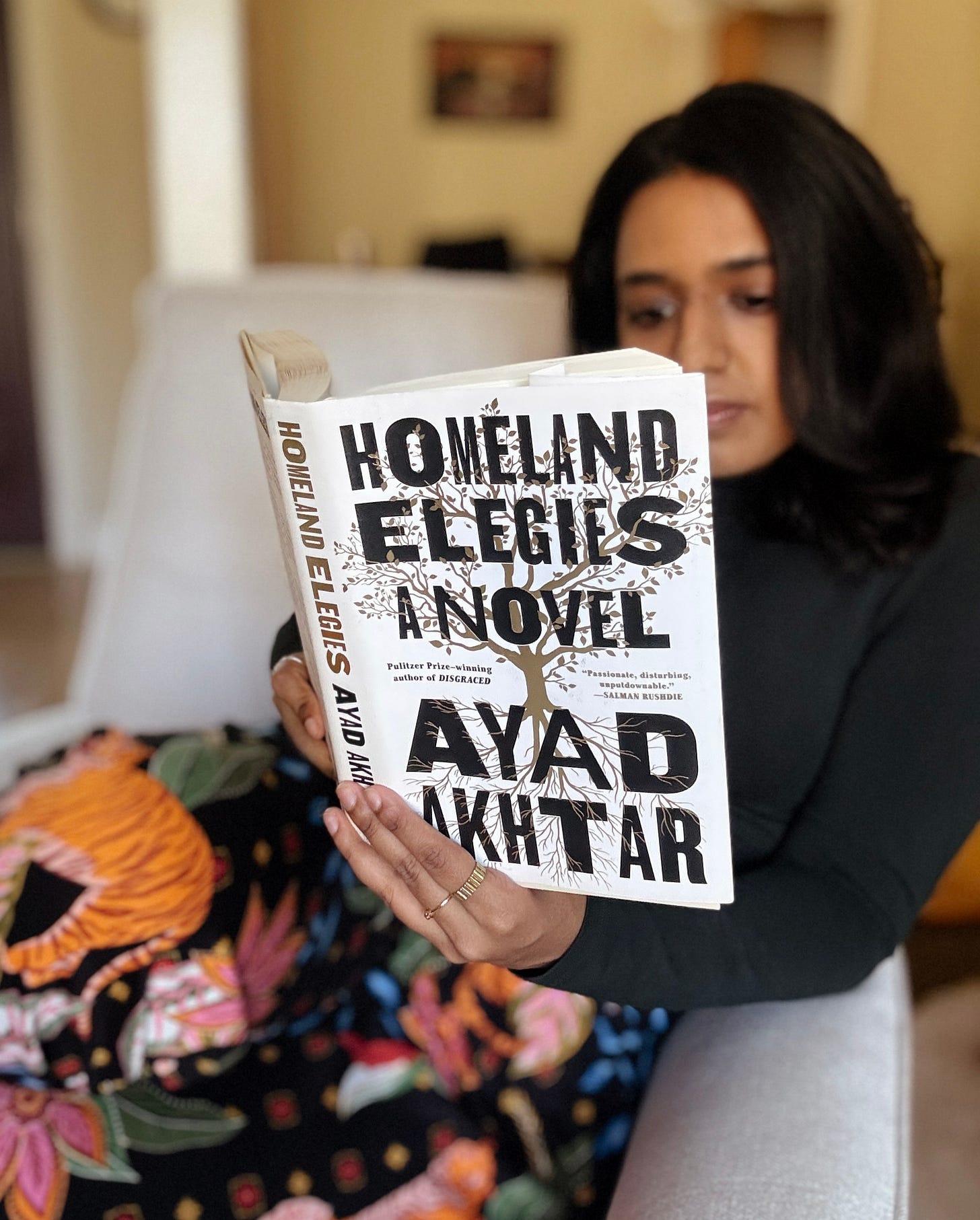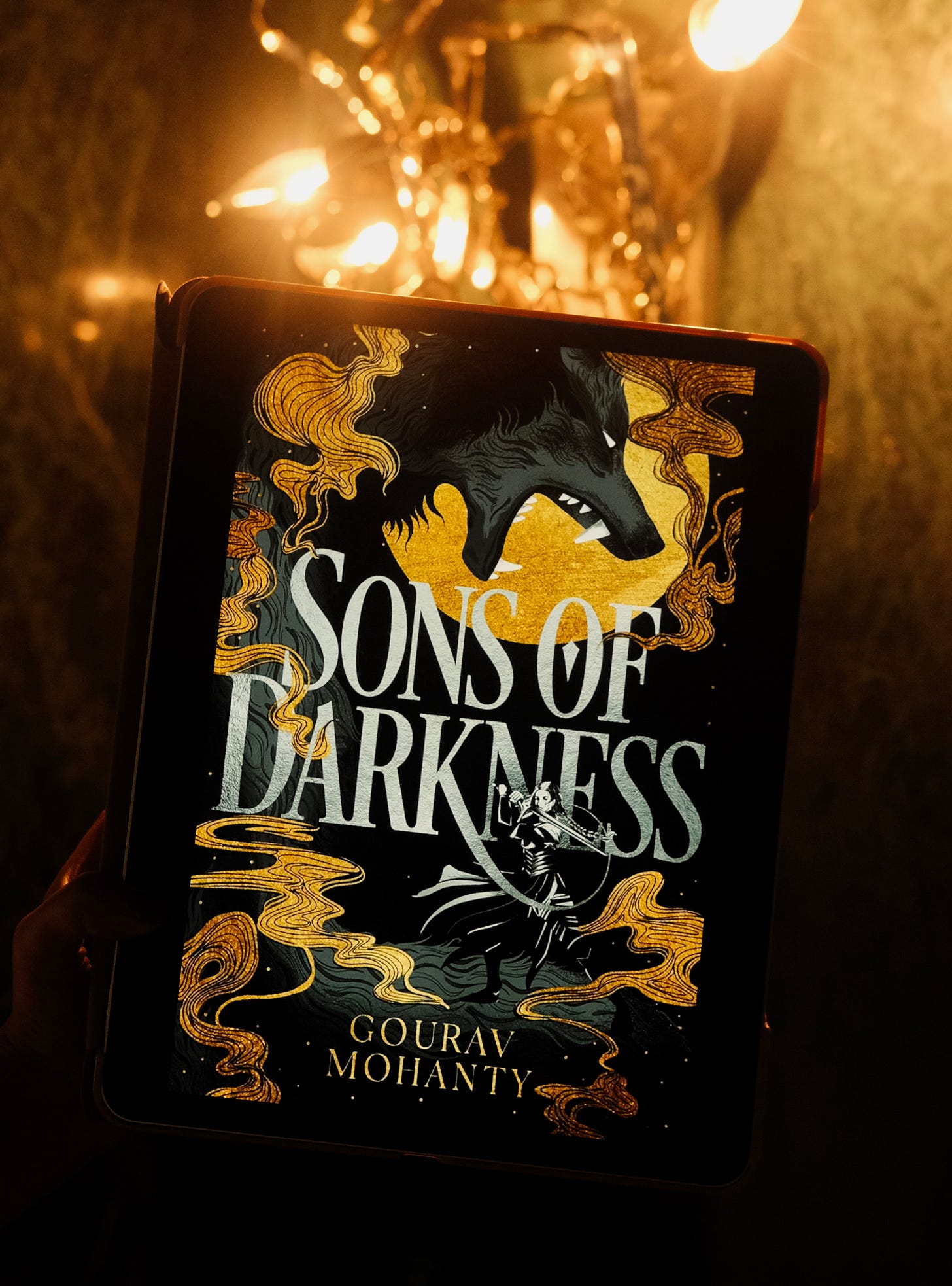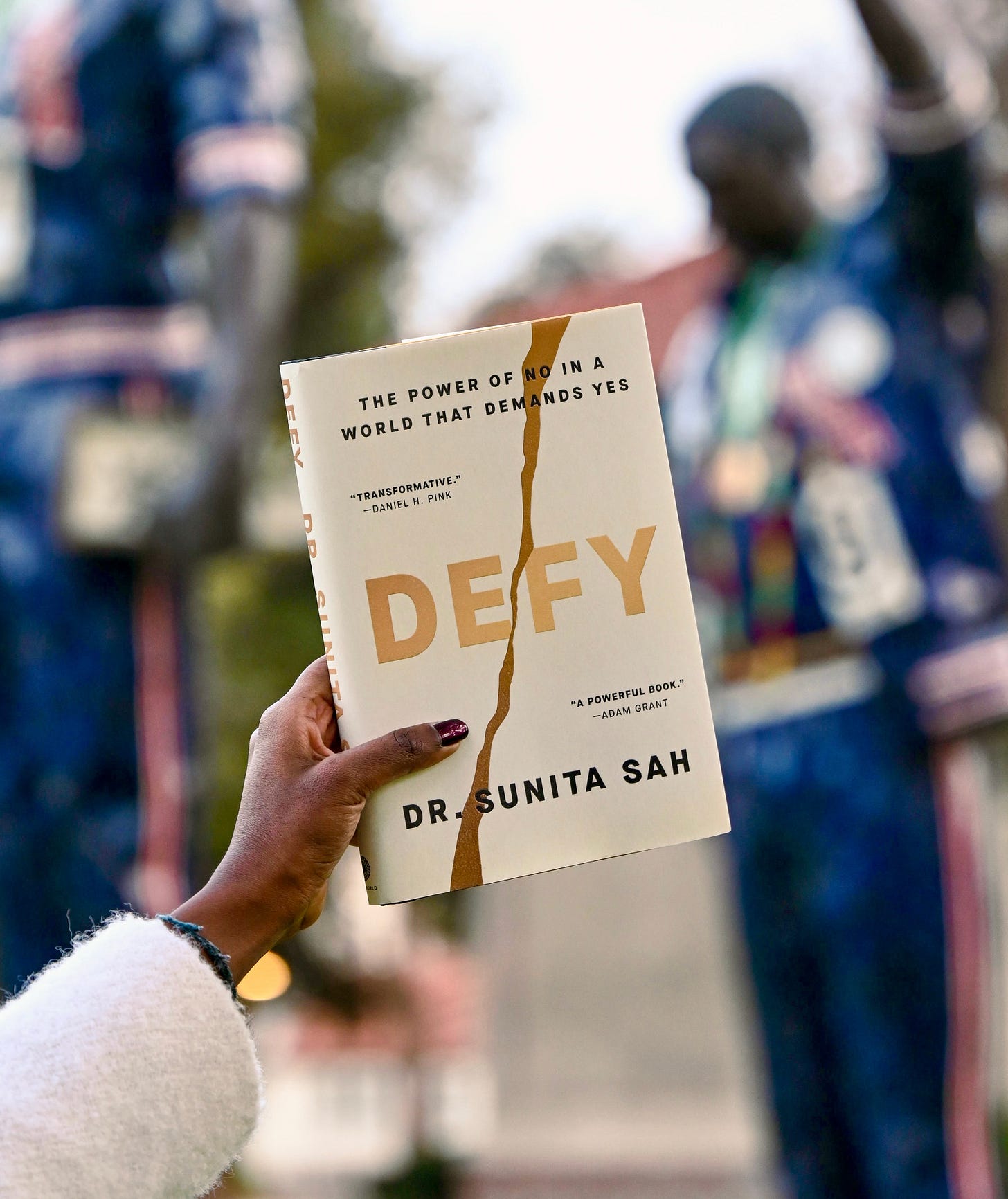Dear readers,
Language has been on our minds lately —its resonance brought to life in two profound forms: Ta-Nehisi Coates’ “The Message” and the Pulitzer Prize-winning play “English.” Though our intent wasn’t to draw parallels between these praiseworthy and thought-provoking works, a common thread emerges: language’s ability to shape and expand our imagination.
Coates, reflecting on a ban of his first book, writes:
Much of the hoopla about “book bans” and “censorship” gets it wrong. This is not about me or any writer of the moment. It’s about writers to come—the boundaries of their imagination, the angle of their thinking, the depth of their questions (110).
These words remind us how restricting language does not just limit expression but the entire scope of creative possibility. For so many immigrants, much of that creativity is deeply intertwined with their cultural identity—shaped by the duality of navigating multiple worlds, preserving heritage, and expressing individuality. In this sense, restricting language not only stifles personal expression but risks erasing the unique perspectives and cultural richness that immigrant voices bring to new countries.
This theme became even clearer as we watched “English.” Set in 2008 Iran, the play centers on four adults enrolled in a class to pass an English proficiency exam. In the 90-minute production, the ensemble reveals:
Marjon, the teacher, went by "Mary" during her time in Manchester.
They revert to Farsi when English feels inadequate to express emotions—like when a character congratulates another after learning about his engagement.
Marjon romanticizes students who speak without an Iranian accent, even making them practice their "W"s in a comedic way using alliteration phrases like "weeping & whispering," so they wouldn't pronounce them as "V"s.
These examples, though just a glimpse into the richness of the play, point to a larger truth: when we limit language, we constrain not only thought but also the cultural identities and perspectives that language carries.
This idea resonates on a personal level, too. How many times have we made decisions about names for future children based on what’s “easy” to pronounce, fearing cultural misunderstanding? By striving for simplicity, are we inadvertently stripping away a deeper connection to our heritage? One of the greatest strengths of being an immigrant lies in drawing from ancestral language and the meanings it carries. But when we attempt to conform to the norms of a dominant culture, we risk losing these points of view, and with it, the richness it brings to the imagination of future generations.
Literature is a vessel for unfiltered thoughts, many perspectives, and boundless creativity. To constrict language is to suppress the very essence of what makes us human—the ability to dream, create, and understand each other.
Until next time,
Mishika and Sri
Homeland Elegies by Ayad Akhtar
Ayad Akhtar’s “Homeland Elegies” opens with a startling claim: the narrator’s father, a cardiologist, once saved Donald Trump from a rare heart disease. But that’s only the beginning of its provocations. What follows is a story that defies genre, blending memoir and fiction to grapple with the fractured question of belonging in a post-9/11 America.
In 2025, the book feels as unsettlingly relevant as it did upon its 2020 release. Back then, it captured the collective unease and polarization of Trump’s first term, with its focus on the vitriol against Muslims. Today, its themes cut even deeper. The immigration debate now extends beyond the Muslim ban and Islamophobia, raising broader questions about who is deemed “worthy” of immigrating, working, and thriving in America. As Ayad, the narrator, and his billionaire hedge fund friend, both Muslims, come to understand, no level of assimilation or success seems enough to earn acceptance. The recent uproar online against Indian H1B visa holders only underscores this point.
The narrator—who suspiciously shares the name Ayad Akhtar—takes us through deeply personal struggles: the guilt and duty that come with being the child of immigrants, the financial failures of a budding playwright, and unsettlingly raw sexual encounters that are more race commentary than smut. These moments are interwoven with unflinching critiques of capitalism, racism, and America’s relentless fixation on identity. There’s even a supernatural thread when the narrator explores controlling his dreams. And yet, by the end, none of it feels unbelievable. This is Akhtar’s genius: his writing exudes such conviction and firsthand account that it feels impossible someone could have invented these stories, even as you hope parts of them are fiction.
Other readers and reviewers have obsessed over what parts of “Homeland Elegies” are autobiographical—I witnessed this firsthand at a speaking event where the author was urged to reveal which stories were true. He sidestepped the question with the same thoughtfully worded ambiguity that defines his writing. Personally, I welcome the mystery. Akhtar has earned the right to his secret by flawlessly blurring the lines between fantasy, fact, and fiction. More essential to ponder than the book’s genre is Akhtar’s uncanny ability to capture the pulse of the present moment—whether in this novel or in his recent Broadway play “McNeal”, which centers on an author criticizing the rise of AI while secretly relying on it for his own work.
The writing itself is sprawling and unpredictable—shifting between academic soliloquies, to glib humor, to intimate revelations. But there’s something gratifying about finishing a book that demands so much. Moreover, I believe that discomfort is the point. “Homeland Elegies” is a reflection of current-day messiness, reckoning with what it means to belong in a country that can’t decide who deserves mercy or acceptance.
📚 Get your copy of “Homeland Elegies.”
Brown Women Have Everything by Sayantani Dasgupta
Reviewed by: Nandini Erodula
Sayantani Dasgupta’s “Brown Women Have Everything” is a poignant collection of essays tracing her journey from New Delhi, India, to various corners of America, navigating the complexities of identity, belonging, and resilience as a brown woman.
One essay opens with a reflection on the nature of history and memory. Dasgupta writes, “I know how history functions. I understand the role of erasure and remembrance, as a student of both history and literature, and because I am from Delhi, one of the oldest cities in the world, built, extended, and rebuilt on the ruins of former dynasties by the whims of whoever is in power.” This sets the stage for her exploration of what it means to navigate life as a woman of color in American academia—a world often marred by exclusion and bias.
Dasgupta also delves into the loneliness that often shadows her journey, sharing her process of overcoming feelings of isolation. Her experiences—from Idaho to North Carolina—highlight the myriad of "life games" one must play to find acceptance and success in such environments.
One of the most compelling aspects of Dasgupta’s writing is her exploration of language. She articulates how English has shaped her life and career as an English professor, becoming both a tool for advancement and a site of struggle. Her insights into the pressures and expectations placed upon her as a brown woman are both relatable and thought-provoking, shedding light on internal battles, including those related to overthinking, hair, and body image.
Dasgupta invites readers to reflect on their own personal experiences, making this collection a vital read for anyone seeking to understand the nuances of race, gender, and the immigrant experience in contemporary society.
📚 Get your copy of “Brown Women Have Everything.”
Sons of Darkness by Gourav Mohanty
Reviewed by: Sandhya Simhan
This isn’t your typical myth retelling—it’s the first wild ride in a series where ancient legends meet contemporary chaos. In “Sons of Darkness,” the Mahabharata takes on Game of Thrones in the most exciting grimdark fantasy I’ve read in years. Krishna sheds his image as a benevolent deity to become a master manipulator, reveling in the strings of power he pulls.
Mohanty’s bold storytelling is matched by meticulous world-building, weaving in modern issues like caste struggles and the tug-of-war of religious politics, giving ancient legends a sharp, contemporary edge.
Even if you’re not drawn to mythology, this hefty debut is worth the read. Mohanty’s fearless take on cycles of suppression is both bold and unforgettable.
📚 Get your copy of “Sons of Darkness.”
Defy by Sunita Sah
Reviewed by: Alagu Chidambaram
Would you be the man before the tank at Tiananmen Square or Rosa Parks on the bus? While we romanticize revolutionaries and like to believe we’d stand up for justice, in daily life, many of us passively comply with societal expectations, saying “yes” simply because it’s expected. In ”Defy: The Power of No in a World That Demands Yes”, Dr. Sunita Sah demonstrates that defiance isn’t about being contrarian. It’s about recognizing when to say no, and more importantly, understanding why and how to do so.
Sah’s book thoughtfully examines the true meaning of consent, emphasizing how passive compliance is often confused with true agreement. She highlights that consent is often a default response rather than an active choice—like clicking "I agree" to terms or signing forms without understanding them. This, she argues, is passive compliance, not true consent. True consent requires awareness, considering dissent as an option, forming the basis of what Sah terms a “True No.” Defiance, Sah explains, is not mere rejection but a conscious alignment with one’s core values. It’s a deliberate choice to resist manipulation or coercion and stand up for one’s beliefs.
“Defy” demystifies defiance, showing it’s not just for historic figures but for anyone in everyday life. Sah guides readers to recognize moments of discomfort—our internal signal that something feels wrong—and suggests this is when we may need to say no.
She offers practical steps to build the “muscles” of active consent and defiance, habits that help us live authentically and align with our values. Sah’s guidance is pragmatic, showing that defiance doesn’t have to be dramatic; small acts in personal, professional, or societal contexts can make a meaningful difference in reclaiming agency.
Importantly, Sah acknowledges that defiance isn’t always an option for everyone. Socioeconomic pressures, social bonds, and marginalized identities can complicate or limit open defiance. Sah is careful to note that defiance should not be idealized to the point of overlooking its challenges She emphasizes that sometimes choosing not to defy is a deliberate, thoughtful decision rooted in survival or careful consideration.
As we head into a new presidency, many of us have concerns about what the future holds. Democracy around the world seems to be at risk, and now more than ever, it is time to take Sah's message to heart and convert it into action. ”Defy” serves as a timely reminder that standing up for what we believe in is essential for safeguarding our values, our rights, and the health of our democracy. Sah’s call for active consent and conscious defiance is not just an individual journey; it’s a collective one. Defiance is vital for creating a society where we can live authentically and with agency, despite the pressures that seek to conform us.
📚 Get your copy of “Defy.”








